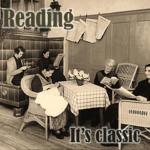
 “Nothing but net!”
“Nothing but net!”
Great in basketball. Terrible in trawler fishing.

 “Nothing but net!”
“Nothing but net!”
Great in basketball. Terrible in trawler fishing.

 No, a sundress is not “a woman who sunders.”
No, a sundress is not “a woman who sunders.”

 Often, while thinking about history or historical fantasy, it can be difficult to maintain a sense of scale and proportion. We might know about European cave painting, Saharan rock art, the founding of ancient cities, and the advance of domestication. We might have a vague sense of seas rising as Ice Age glaciers melted, fluctuating climate, natural disasters, and the march of extinctions. And, we might have a sense that the various ethnic groups and ideas familiar today were not always around, but when did they begin? When did the ancient people live whose descendants became today’s Jews and Arabs, Irish and Greeks and Indians, Zulus and Swahilis, Maori and Hawaiians, Chippewa and Cheyenne, Iroquois and Cherokee?
Often, while thinking about history or historical fantasy, it can be difficult to maintain a sense of scale and proportion. We might know about European cave painting, Saharan rock art, the founding of ancient cities, and the advance of domestication. We might have a vague sense of seas rising as Ice Age glaciers melted, fluctuating climate, natural disasters, and the march of extinctions. And, we might have a sense that the various ethnic groups and ideas familiar today were not always around, but when did they begin? When did the ancient people live whose descendants became today’s Jews and Arabs, Irish and Greeks and Indians, Zulus and Swahilis, Maori and Hawaiians, Chippewa and Cheyenne, Iroquois and Cherokee?
This handy chart should help put a lot of these important historical trends, events, and persons into perspective. Of course, dates and figures in the distant past are always up for debate based on interpretation of the scientific evidence, and I have tried to include only those with the greatest support.

 Fictional teenager with secret powers: “I wish I could just be a normal teenager!”
Fictional teenager with secret powers: “I wish I could just be a normal teenager!”
Real-world normal teenager: “I wish I could have secret powers!”
 There are people who want to be successful, and there are people who want to succeed.
There are people who want to be successful, and there are people who want to succeed.
Being successful means success in social terms, in terms of status, respect, credential, and self-esteem.
To succeed means success in practical terms, in terms of measurable progress, achievement, evidence, and self-improvement.
People who want to be successful say, “Let’s make this work!” Let’s build a business process out of enthusiasm and a can-do attitude! Let’s build a profitable third quarter out of persistence and cookie-cutter talking points about diversity, team effort, and leadership! Let’s build a ship out of cotton candy and unicorn dreams!
People who want to succeed are not afraid to say, “That isn’t going to work!” Collecting metrics on important but infrequent events will not provide a statistically valid sample size. Training people to improve innate talents they lack will never result in excellent performance. Obsessing about physical diversity while mismanaging intellectual diversity will achieve neither justice nor effectiveness.
People who want to succeed are not afraid to point out bad plans, no matter how frustrated it makes people who want to be successful, because the real world has real consequences and real causality. You can’t cheer yourself to success.

 Magician (waving wand): Watch me pull a rabbit out of my hat!
Magician (waving wand): Watch me pull a rabbit out of my hat!
Boy: Why?
Magician (slouching): What? Why what?
Boy: Why would you pull a rabbit out of a hat? Why would you want to?
Magician: It’s magic!
Boy: That’s kind of a dumb kind of magic.

 I have an accent. You have an accent. We all have accents. Nobody “doesn’t have an accent,” although you often hear people claim they don’t because they speak a particularly privileged accent.
I have an accent. You have an accent. We all have accents. Nobody “doesn’t have an accent,” although you often hear people claim they don’t because they speak a particularly privileged accent.
For some reason, I hear this asserted most often by people from America’s Pacific Northwest. Not sure what they’re teaching kids in school up in Ecotopia, but Oregonians and Washingtonians should know that they also speak a dialect and have an accent, just like all us Muggles.
True, in most languages there is often an accent or family of accents accepted as a “standard” for communication, but these are still accents. It’s a silly prejudice to think of one dialect as “just talking” and all the rest as accents, as silly as the prejudice that led many ancient cultures to name themselves The (Real/Genuine) People while everyone else were “the tribes.”
Just as silly as the prejudice that leads many today to honor a socially privileged style of literature as “literary” while all other styles are mere “genres.”
This sort of social signifier carries a lot of emotional weight. People are very touchy and defensive about their speaking styles, their writing styles, their cultural styles. Here’s a personal anecdote that shows how this can really make life unnecessarily difficult for everyone:

 The other day I made an argument for follow-up material to elevator pitches. My real point was about what makes stories actually work, and that it has nothing to do with a high-concept premise, an engaging summary, or a captivating elevator pitch.
The other day I made an argument for follow-up material to elevator pitches. My real point was about what makes stories actually work, and that it has nothing to do with a high-concept premise, an engaging summary, or a captivating elevator pitch.
But, as part of this, I was defending my practice of including follow-up material, including episode-by-episode or scene-by-scene outlines, with elevator pitches I feel really passionate about like Ocean City and Golem.
Recently, though, I’ve been working on a pitch for a period drama, and want to interweave the fictional character dynamics with real-world characters and events in a way that’s reminiscent of Black Sails and Downton Abbey. Noting how well the latter series has been building up to the historical crisis point of Nazi Germany, I want to do a full episodic outline of the first series with projected sketches for the subsequent four seasons leading to the well-known incident in American history.
An incident that shall remain nameless until I post the pitch. No spoilers! (As Doc Holliday said in Tombstone, my hypocrisy knows no bounds.)
The experience is giving me a real appreciation for the teamwork that goes into writing for a real television series, and the engrossing nature of doing this sort of work for a living. I have an editorial “day job” after all, and just trying to find the right threads to weave together has taken a surprising amount of time and research, even at the mere outline level of development.
New Girl creator Elizabeth Meriweather confessed on an episode of The Writers’ Room that she struggled with the need to leave a lot of the writing to others. I feel I’ve been pre-inocculated against that.

 Joke of the day:
Joke of the day:
A wormhole bar walks into a.

 “Why do you bother with the follow-up material in some of your elevator pitches? An elevator pitch is supposed to be succinct and easy to take in quickly.”
“Why do you bother with the follow-up material in some of your elevator pitches? An elevator pitch is supposed to be succinct and easy to take in quickly.”
Well, because elevator pitches alone are worthless, really. Elevator pitches, plot summaries, high-concept narratives, all of these conventional keys-through-the-gateways of publishing and Hollywood? They’re total bullshit measures of the worth (and success potential) of a story.